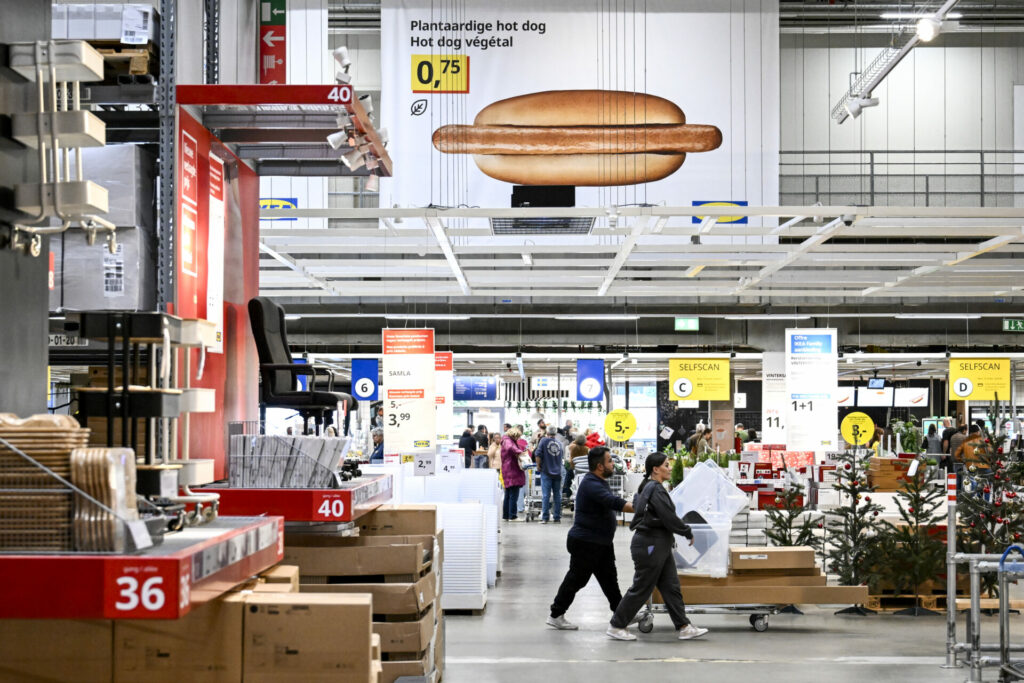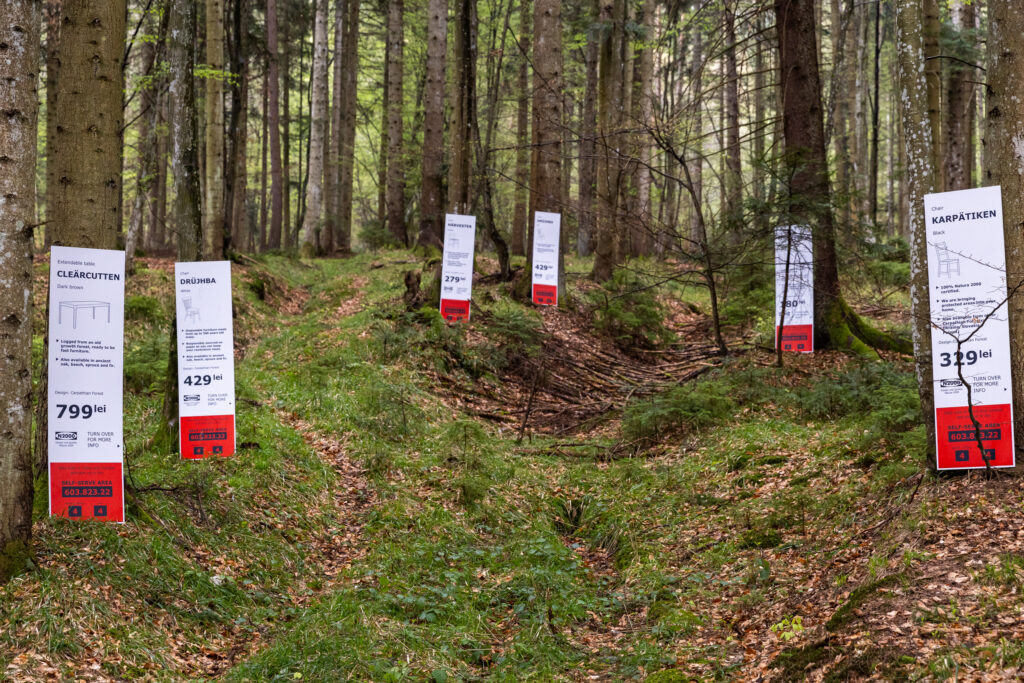Companies producing furniture for the Swedish multinational homeware brand IKEA are sourcing wood from some of Europe's last remaining old-growth forests in Romania, an investigation published by Greenpeace on Wednesday has revealed.
The investigation found that seven manufacturers producing IKEA's most popular products, such as Ingolf chairs or Sniglar baby cribs and beds for children, are linked to the destruction of high-conservation value forests.
"Our nature heritage cannot be turned into pieces of furniture," said Robert Cyglicki, Biodiversity Campaign Director at Greenpeace Central and Eastern Europe.
Specifically, ecologically valuable primaeval forests in the Romanian Carpathians – including in Natura 2000 protected areas – have been impacted. These are some of the last vast forests in Europe that have hardly been touched by humans.
Old-growth wood on IKEA shelves
"Old forests are vital to the planet’s health and must be protected immediately," Cyglicki said. "IKEA must live up to its own sustainability commitments and clean up its supply chain from old-growth forest destruction."
At least 30 products from these suppliers were found in IKEA stores in Austria, Belgium, Czechia, Finland, France, Germany, Hungary, Italy, Israel, Poland, Sweden, Switzerland, and the United Kingdom. A similar investigation by Begium's national broadcaster RTBF highlighted commercial malfeasance by IKEA, which it found engaged in deforestation and harmful "fast furniture" activities.
Greenpeace calls on IKEA to be part of the solution instead of contributing to the ongoing climate and biodiversity crises. The report 'Assemble the truth: Old-growth forest destruction in the Romanian Carpathians' was researched and written by Greenpeace Central and Eastern Europe.
Investigation teams analysed supply chains, from analysing permits and satellite imagery of logging sites in the forests in Romania to wood depots and furniture manufacturers, to where those products end up – on the shelves of IKEA stores.

Ikea store in Zaventem. Credit: Belga/Dirk Warm
Several manufacturers were found to be sourcing wood from high conservation value forests. Based on publicly available information, IKEA is the biggest client for the implicated companies, making it highly likely that the protected wood is ending up in IKEA furniture. The report highlights the manufacturer Plimob, whose products go almost exclusively go IKEA.
When contacted by Greenpeace CEE for a comment on the findings, IKEA did not dispute the information. One of the manufacturers acknowledged receiving timber from a Natura 2000 area but denied that this was illegal. Several others did not respond.
While Greenpeace recognised the value of wood as a material for furniture that stores carbon, it stressed that this should not come at the expense of the planet’s most biologically diverse forests such as the Carpathians – home to brown bears, lynx, wolves and the European bison. Many of these species are endangered.
The environmental organisation warns that companies and authorities eager to capitalise on these natural areas oppose their categorisation as primary or old-growth forests. As a result, just 2.4% (1700 km²) of the Romanian Carpathian forests are currently protected against logging.
At the same time, official data suggests that around 7% of the Romanian forests are over 120 years old. According to the EU’s Biodiversity strategy, these forests should be strictly protected. "IKEA must become a corporate frontrunner for the needed political action to put in place legally binding and effective biodiversity protection measures to fulfil Europe’s biodiversity targets," said Cyglicki.

